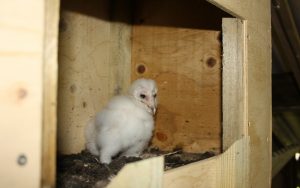Eco-enhancements from small planning applications in South Downs National Park
December 19, 2023
Adam Duncombe, Development Management Officer, writes about the collective contribution small planning applications can make to nature recovery and climate.
 I have been working as a development management officer for the National Park for around five years now. It’s a fantastic place to work and perhaps more importantly it offers the opportunity to help applicants for smaller proposals understand how each proposal can benefit the natural environment and enhance the special qualities of the National Park.
I have been working as a development management officer for the National Park for around five years now. It’s a fantastic place to work and perhaps more importantly it offers the opportunity to help applicants for smaller proposals understand how each proposal can benefit the natural environment and enhance the special qualities of the National Park.
Sometimes reading the headlines the climate change issues we face globally can feel overwhelming for those of us going about our daily lives. During the consideration of an application, I speak to applicants who are very keen to provide eco enhancements to proposals but are worried about the cost when already tight against budgets.

It’s important to remember that no matter how small the eco enhancement is, it’s a win. The National Parks local development plan policy Ecosystem Services (SD2) explains that “development proposals will be permitted where they have an overall positive impact on the ability of the natural environment to contribute goods and services” This is a fantastic opportunity for anyone who is developing with the National Park to provide a positive environmental impact.
“That’s great, but how much will this cost me?” This is the even better news. Less than you would think. Opportunities for eco enhancements can include measures such as additional native wildflower planting for pollinators within a garden, the introduction of bird, bat boxes and wood piles within a site to provide additional habitats for local wildlife or planting a native hedge or vegetation within the development site. These are just some of the many enhancements that can easily be achieved and indeed most of the above can be provided from recycled materials or seeds/cuttings from the local area.
The Ecosystem Services Technical Advice Note for householders is an essential document for those applying for any householder development within the National Park. Its packed full of practical, easy to follow advice to assist developers when applying for planning permission.
Clearly the more enhancements an applicant puts forward the better and I would urge all applicants, regardless of the scale of the proposal, to really consider how development can add value to the ecosystem.
In closing, the point I want to really highlight is although each of the above examples may feel small and minor in its own right, when considered in the context of the number of planning applications we consider as a whole within the National Park, these so called “small” enhancements are not small at all and as a whole add a tremendous amount of value to our natural environment and provide much needed eco enhancements within the National Park and our country as a whole.
